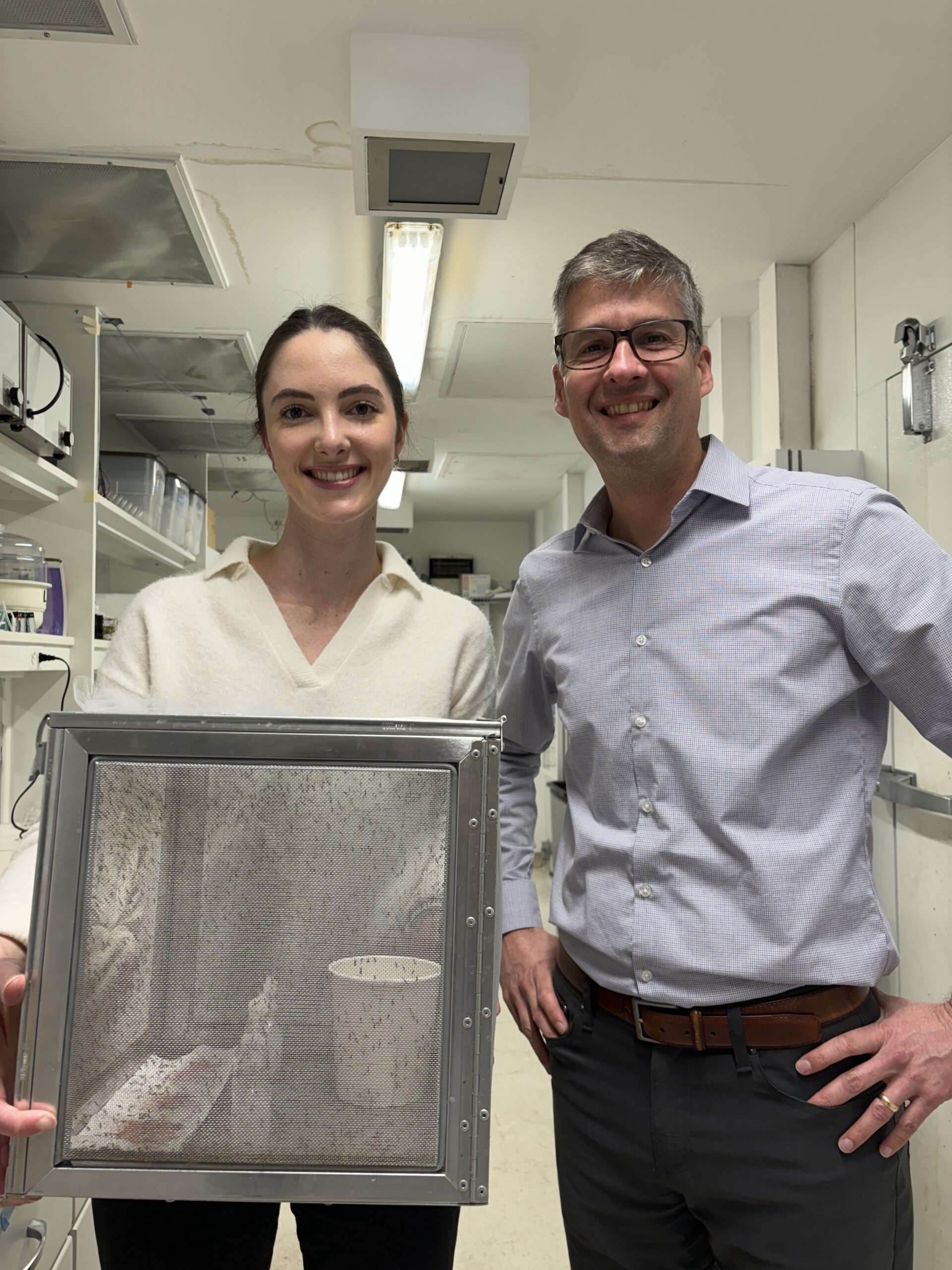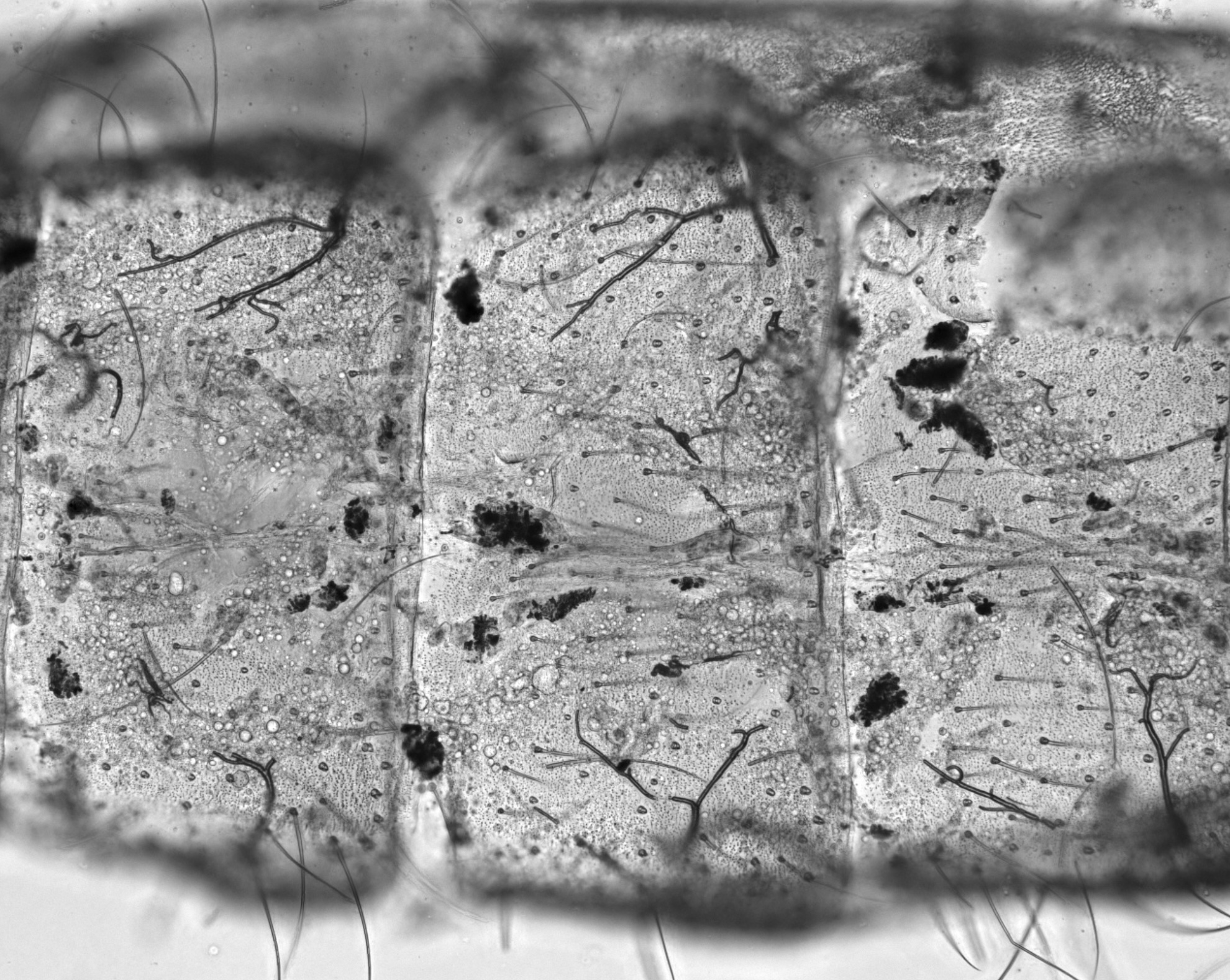Vanderbilt University biologists discover that rising temperature accelerates aging in mosquitoes, weakening their immune system
By Sarah Ward, Evolutionary Studies graduate communications assistant
Climate change may weaken mosquitoes by speeding up aging and slowing down their immune system.

A study published January 10, 2024 in PLOS Pathogens by Vanderbilt biology graduate student Lindsay Martin and Centennial Professor of Biological Sciences Julián Hillyer found that mosquitoes age more quickly when temperatures are higher. This aging, in turn, weakens the mosquito immune system and makes them more likely to get infected with disease. Because global temperature is rising due to climate change, Martin and Hillyer’s findings could have grave implications for the mosquito population and disease transmission.
According to the World Health Organization, vector-borne illnesses such as Malaria and Zika virus cause more than 700,000 deaths annually. They account for approximately 17% of all infectious diseases, and they’re transmitted by blood-sucking insects like mosquitoes. The dire impact of vector-borne disease is due, in part, to an eerily simple transmission mechanism – a bite from an infected mosquito.
Generally, when immunocompetent people get sick, the body mounts a series of immune responses (think that nasty fever that accompanies COVID-19) to eliminate the infection. Mosquitoes also mount immune responses to eliminate infections, but their immune systems have evolved to be very sensitive to the surrounding environment. This is because mosquitoes are ectotherms, so their body temperature fluctuates relative to the environmental temperature.
According to Martin, “this means that mosquito body temperature will increase in a warming climate.”
Mosquitoes, like humans, also undergo senescence, which is a weakening of their physiology with aging. “If mosquitoes are aging, they’re undergoing a weakening of their immune system while being exposed to higher temperatures,” said Martin, “we wanted to know: what are the compounded effects?”

To measure mosquito response to changing temperature, Martin reared mosquitoes from birth to death in three separate temperature and humidity controlled walk-in chambers. She then infected over 7000 mosquitoes and studied their immune responses at three different ages and temperatures.
“If you do the math, that ends up being 48 different combinations across three different variables,” said Vanderbilt biologist Julián Hillyer, who is Martin’s thesis advisor and a co-author on the paper, “the analysis is, computationally, quite complex.”
Martin and Hillyer’s paper focused specifically on one immune response called melanization, by which mosquitoes form hard shells of melanin around pathogens to starve them of nutrients. Melanization can be observed along a mosquito’s abdominal wall under a microscope. Martin found that mosquitoes aged more rapidly at higher temperatures, which in turn weakened the melanization response.
In future work, Martin and the Hillyer lab plan to study how rising temperature impacts immune responses other than melanization. They also hope to make a connection between weakening immune system and mosquito survival, which could have implications for rates of disease transmission.
“It’s complex, because if mosquitoes have a weaker immune response, and are more likely to be infected, they are also potentially more likely to die from infection,” said Martin, “and if they die before they are able to bite the next human victim, that might reduce disease transmission.”
Martin also emphasizes the implications that this work could have for other ectotherm insects, beyond just mosquitoes. “Mosquitoes are ectotherms, but so are most insects,” she added, “we really need to be investigating how rising temperature will impact our agricultural systems, pollinators, and other disease-transmitting insects.”
Funding Statement: This work was funded by National Science Foundation (NSF) Grant IOS-1936843 to Hillyer and NSF Graduate Research Fellowship to Martin. The funders had no role in study design, data collection and analysis, decision to publish, or preparation of the manuscript.
Citation: (2024) Martin, L.E. and Hillyer, J.F., Higher temperature accelerates the aging-dependent weakening of the melanization immune response in mosquitoes PLOS Pathogens. DOI: https://doi.org/10.1371/journal.ppat.1011935
